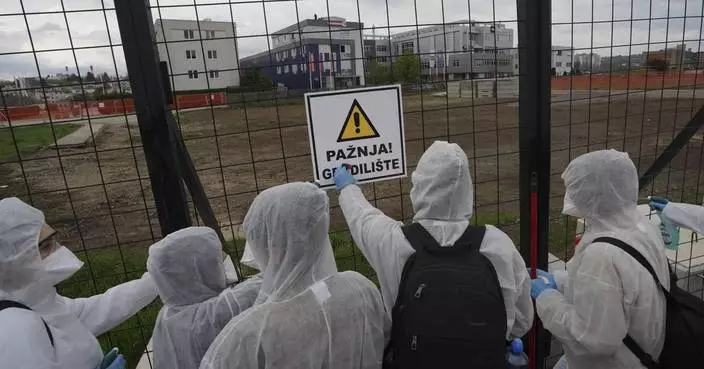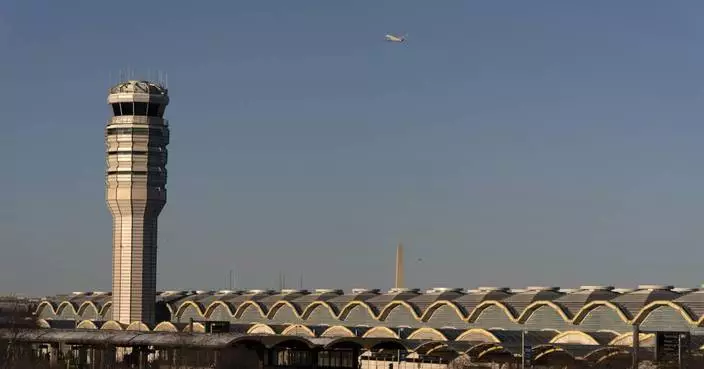BRASILIA, Brazil (AP) — Brazil's environmental agency has levied $64 million in fines against 23 meatpacking companies and their suppliers for buying and selling cattle raised illegally on deforested land in the Amazon.
The operation, dubbed Cold Meat 2, launched last week. It tracked 18,000 head of cattle raised in 100 square miles (260 square kilometers) of pasture that has been banned for commercial use due to illegal deforestation. The agents also apprehended 8,854 head of cattle found inside the restricted areas. News of the fines began emerging over the weekend.
Cattle raising is the main driver of deforestation in the Brazilian Amazon, with 90% of the total area cleared between 1985 and 2023 converted to pasture. That represents a total of 227,800 square miles (590,000 square kilometers), slightly larger than France. As a result, 14% of the Amazon is covered by grazing land, according to MapBiomas, a network of nongovernmental organizations that monitors land use.
“We are inspecting the production chain to hold offenders accountable for acquiring products from deforestation and to ensure that crime does not pay,” Jair Schmitt, chief of environmental protection at Brazil’s federal environmental agency, known as Ibama, told The Associated Press.
Among those fined was JBS, the world's largest meat-packing company. JBS has applied to be listed on the New York Stock Exchange, a move that has faced opposition from some U.S. lawmakers and environmental nonprofits. It's not clear when the U.S. Securities and Exchange Commission may make a decision on JBS' bid.
The JBS fine was $108,000 for purchasing 1,231 head of cattle, the fifth largest penalty among the fined companies.
The operation followed three months of investigation by Ibama's intelligence unit and is the latest episode linking JBS to illegal deforestation. In December, AP revealed that it is facing lawsuits for allegedly purchasing cattle raised illegally in Jaci-Parana, a protected area in the Brazilian Amazon.
In a statement, JBS denied buying cattle from embargoed areas and said it had already submitted documents to Ibama demonstrating their legal origin. However, the company declined to comment on the Jaci-Parana’s case despite repeated requests for clarification from AP since it published the story.
“JBS has maintained its Responsible Procurement Policy for 15 years and has a geospatial monitoring system in place to ensure that the company does not purchase animals from farms involved in illegal deforestation, encroachment on Indigenous lands or conservation areas that are under embargo by Ibama,” read the statement.
Agropam, a meatpacker in Boca do Acre city, received the largest fine, $493,000, for buying 5,624 head of cattle from illegal areas. The company, which operates under the name of Frizam, sells beef only for Brazil's internal market. A message requesting comment was not returned.
The other top companies targeted were Mafrico, Frigol and 163 Beef. In a press statement, Frigol denied any wrongdoing and stated it has reached 100% compliance in independent audits since 2021.
Mafrico did not respond to a request for comment left by phone. Contact information for 163 Beef was not immediately available, as numbers on its Facebook page were disconnected.
The Associated Press’ climate and environmental coverage receives financial support from multiple private foundations. AP is solely responsible for all content. Find AP’s standards for working with philanthropies, a list of supporters and funded coverage areas at AP.org.
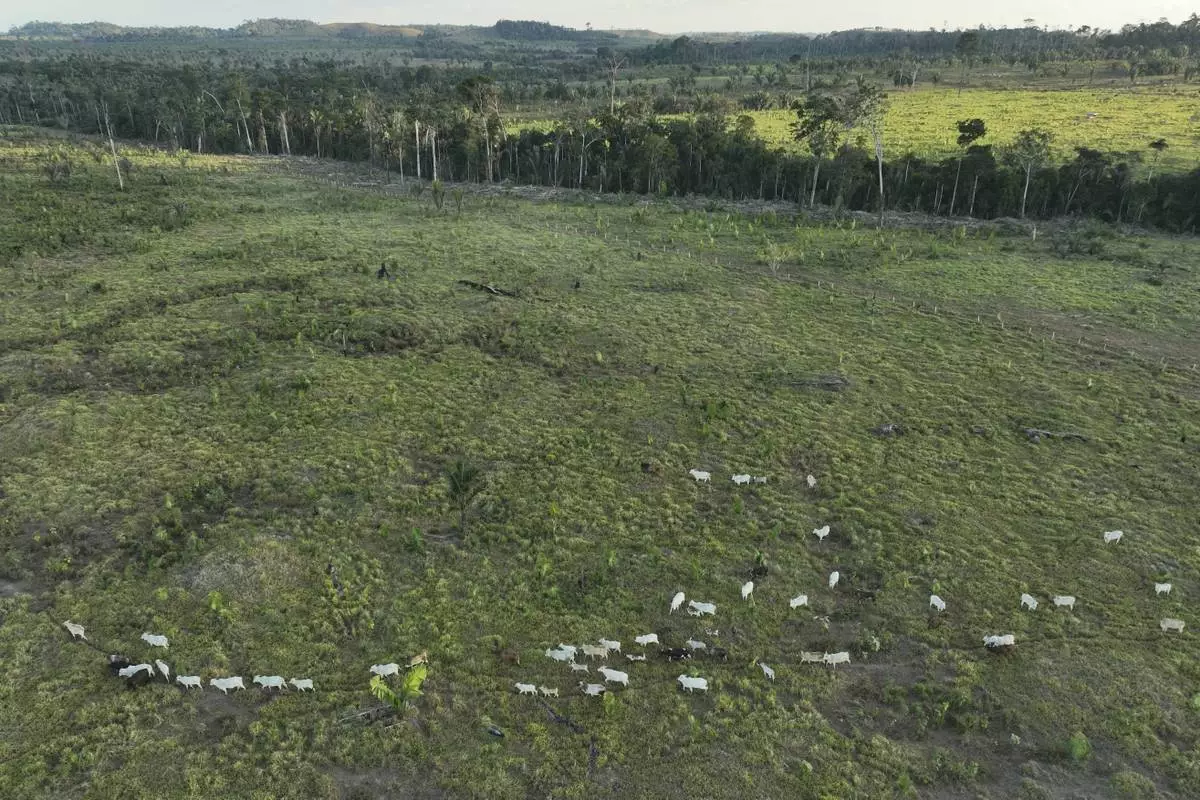
FILE - Cattle walk along an illegally deforested area in an extractive reserve near Jaci-Parana, Rondonia state, Brazil, July 12, 2023. (AP Photo/Andre Penner, File)
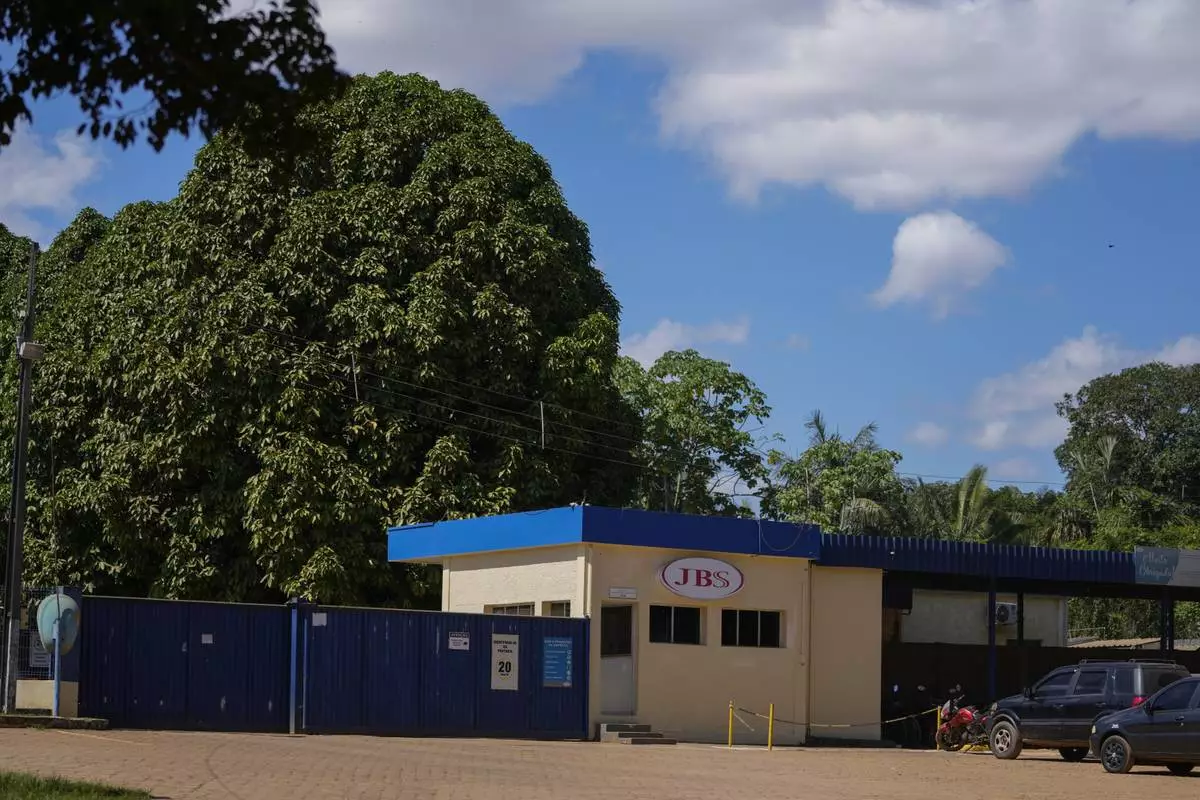
FILE - The main entrance of the meat processing company JBS is visible in Porto Velho, Rondonia state, Brazil, July 12, 2023. (AP Photo/Andre Penner, File)
WASHINGTON (AP) — The top vaccine official with the Food and Drug Administration has resigned and criticized the nation’s top health official for allowing “misinformation and lies” to guide his thinking behind the safety of vaccinations.
Dr. Peter Marks sent a letter to Acting FDA Commissioner Sara Brenner on Friday saying that he would resign and retire by April 5 as director of the Center for Biologics Evaluation and Research.
In his letter, which was obtained by The Associated Press, Marks said he was “willing to work” to address the concerns expressed by Robert F. Kennedy Jr., about the safety of vaccinations. But he concluded that wasn't possible.
“It has become clear that truth and transparency are not desired by the Secretary, but rather he wishes subservient confirmation of his misinformation and lies,” he wrote.
The U.S. Department of Health and Human Services did not respond to a request for comment.
Marks was offered the choice of resigning or being fired by Kennedy, according to a former FDA official familiar with the discussions, who spoke on condition of anonymity because he didn’t have permission to discuss the matter publicly.
Kennedy has a long history of spreading anti-vaccine misinformation, although during his Senate confirmation hearings he seemed to say he would not undermine vaccines. He promised the chair of the Senate health committee that he would not change existing vaccine recommendations.
Since becoming commissioner, Kennedy has vowed to scrutinize the safety of childhood vaccinations, despite decades of evidence they are safe and have saved millions of lives.
Marks oversaw the agency’s rapid review and approval of COVID-19 vaccines and treatments during the pandemic.
Marks is credited with coining the name and concept for “Operation Warp Speed,” the effort under President Donald Trump to rapidly manufacture vaccines while they were still being tested for safety and efficacy. The initiative cut years off the normal development process.
Despite the project’s success, Trump repeatedly lashed out at the FDA for not approving the first COVID shots even sooner. Trump told confidants after his 2020 loss that he would have been re-elected if the vaccine had been available before Election Day.
Dr. Paul Offit, a vaccine expert at Children’s Hospital of Philadelphia, criticized what he called the “firing” of Marks.
“RFK Jr.’s firing of Peter Marks because he wouldn’t bend a knee to his misinformation campaign now allows the fox to guard the hen house," Offit said. “It’s a sad day for America’s children.”
Former FDA Commissioner Dr. Robert Califf said the issues raised in Marks' resignation letter “should be frightening to anyone committed to the importance of evidence to guide policies and patient decisions.”
“I hope this will intensify the communication across academia, industry and government to bolster the importance of science and evidence,” he wrote.
The resignation follows news Friday that HHS plans to lay off 10,000 workers and shut down entire agencies, including ones that oversee billions of dollars in funds for addiction services and community health centers across the country.
In a post on social media Thursday, Kennedy criticized the department he oversees as an inefficient “sprawling bureaucracy." He also faulted the department’s 82,000 workers for a decline in Americans’ health.
The resignation is the latest blow to the beleaguered health agency, which has been rocked for weeks by layoffs, retirements and a chaotic return-to-office process that left many staffers without permanent offices, desks or other supplies. Last month, Jim Jones, the FDA’s deputy commissioner for foods, resigned, citing “the indiscriminate firing” of nearly 90 staffers in his division, according to a copy of his resignation letter obtained by the AP.
Marks, who could not be reached for comment, also raised concerns in his letter about “efforts currently being advanced by some on the adverse health effects of vaccination are concerning” as well as the “unprecedented assault on scientific truth that has adversely impacted public health in our nation.”
He went on to detail the historic benefits of vaccinations dating back to George Washington and pointed to the ongoing measles outbreak as proof of what can happen when doubts about science take hold.
“The ongoing multistate measles outbreak that is particularly severe in Texas reminds us of what happens when confidence in well-established science underlying public health and well-being is undermined,” he wrote.
The measles outbreak, which could go on for months, has now spread to Kansas and Ohio after sickening more than 370 in Texas and New Mexico.
If it hits other unvaccinated communities across the U.S., as may now be the case in Kansas, the outbreak could endure for a year and threaten the nation’s status as having eliminated the local spread of the vaccine-preventable disease, public health experts said.
Casey reported from Boston. Perrone reported from Washington, D.C.
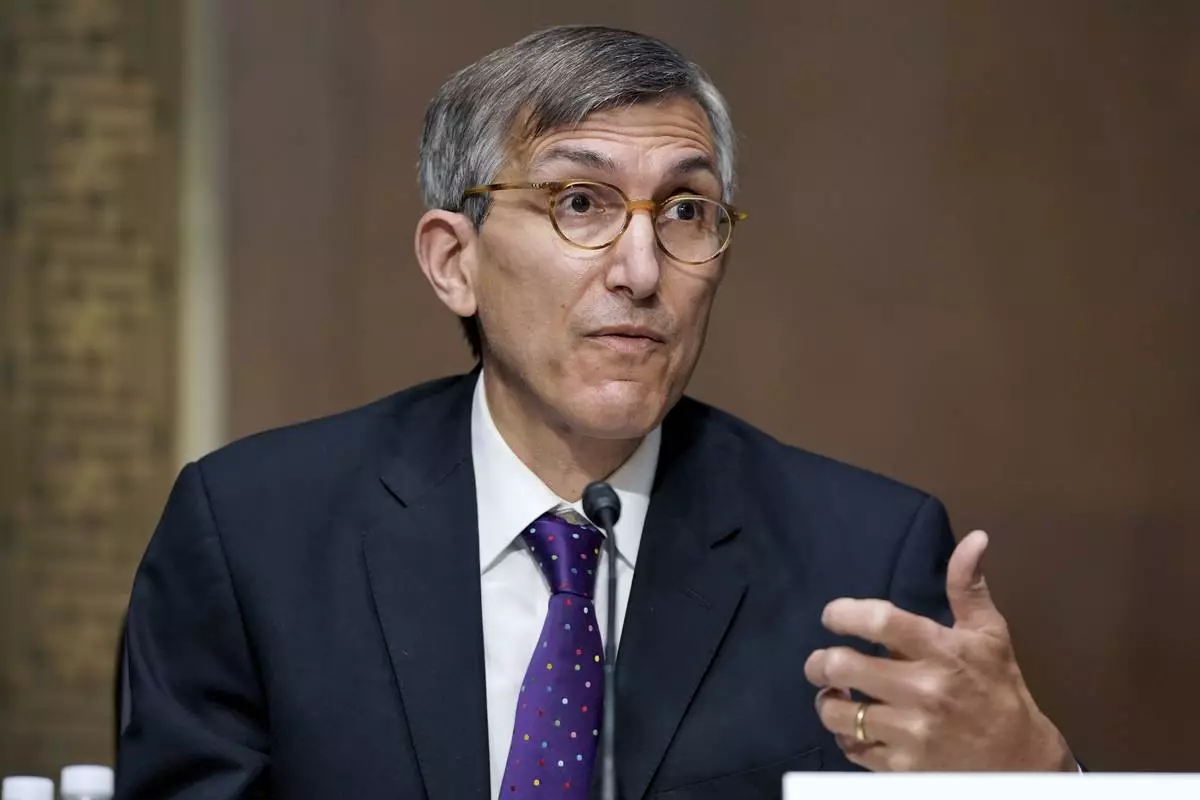
FILE - Dr. Peter Marks, Director of the Center for Biologics Evaluation and Research within the Food and Drug Administration testifies during a Senate Health, Education, Labor, and Pensions hearing to examine an update from Federal officials on efforts to combat COVID-19, Tuesday, May 11, 2021 on Capitol Hill in Washington. (Jim Lo Scalzo/Pool via AP, File)






